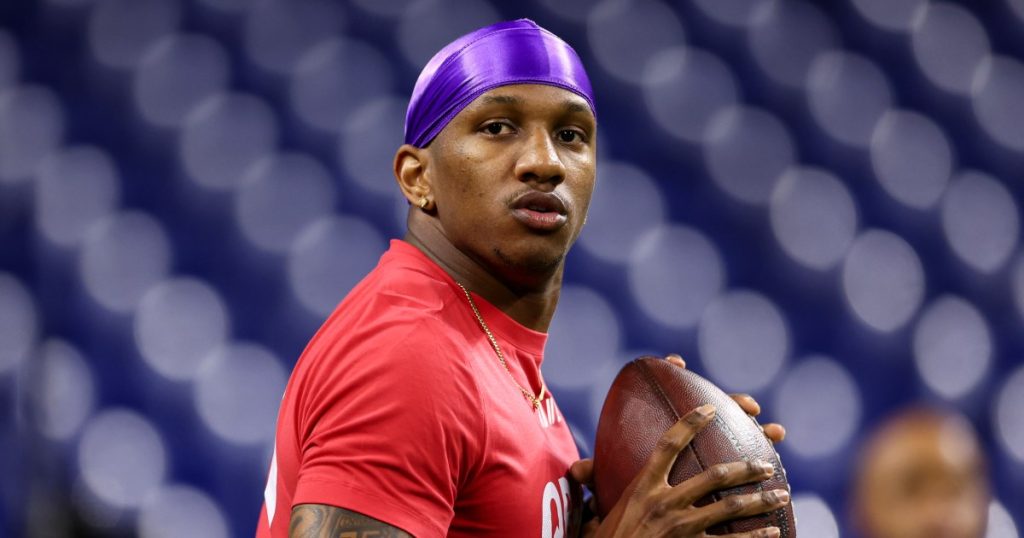The Atlanta Falcons shocked the NFL world by selecting quarterback Michael Penix Jr. with their No. 8 pick in the first round of the draft, despite recently signing veteran Kirk Cousins to a four-year, $180 million contract. The move caught Cousins and his agent, Mike McCartney, off guard, as they had no prior knowledge of the team’s plans to draft another quarterback. Social media exploded with reactions to the surprising pick, with many questioning the team’s decision to add another quarterback to the roster given the recent signing of Cousins.
Cousins, who is 35 years old, has not publicly commented on the Falcons’ decision to draft Penix. Head coach Raheem Morris defended the move, stating that they wanted to address the team’s future quarterback needs while they had a low pick in the draft. General Manager Terry Fontenot echoed Morris’s sentiments, emphasizing the importance of planning for the team’s long-term success. Despite the selection of Penix, Fontenot expressed confidence in Cousins’ abilities and reiterated that the team was excited about having him on board.
Michael Penix Jr., a rookie from the University of Washington, is expected to serve as a backup to Cousins and learn from the veteran quarterback during his initial seasons in the NFL. The decision to draft Penix was based on the team’s long-term vision and their goal of building a sustained winning franchise. The Falcons are optimistic about their prospects with both Cousins and Penix on the roster and believe that they have the talent to succeed in the coming seasons.
Kirk Cousins, who was drafted by Washington in 2012 and later joined the Minnesota Vikings in 2018, will now have to navigate an unfamiliar situation where he shares the spotlight with a younger quarterback who could potentially replace him in the future. This is not an uncommon scenario in the NFL, as other high-profile quarterbacks like Aaron Rodgers and Steve Young have had to share the field with younger signal-callers before eventually transitioning to new teams or retiring. Despite the challenges of adjusting to a new dynamic, Cousins remains focused on helping the Falcons succeed and is committed to contributing to the team’s success in the upcoming seasons.
The Falcons’ decision to draft Michael Penix Jr. has sparked debates among fans and experts about the team’s long-term quarterback plans and the potential impact on Kirk Cousins’ future with the franchise. While some view the move as a bold step towards securing the team’s future success, others question the wisdom of adding another quarterback to the roster with Cousins already in place. However, the team’s leadership remains resolute in their belief that they have made the right choice for the team’s long-term goals and are confident in the abilities of both Cousins and Penix to contribute positively to the Falcons’ success in the years to come.
In the NFL, roster decisions are often based on a combination of immediate needs and long-term planning, with teams constantly looking for ways to improve their chances of winning both in the present and in the future. The Falcons’ selection of Michael Penix Jr. reflects their commitment to building a strong and competitive team that can contend for championships in the years ahead. By adding Penix to their roster alongside Kirk Cousins, the Falcons are positioning themselves for sustained success and are confident in their ability to navigate any challenges that may arise as they work towards their goals of winning consistently in the highly competitive NFL landscape.













